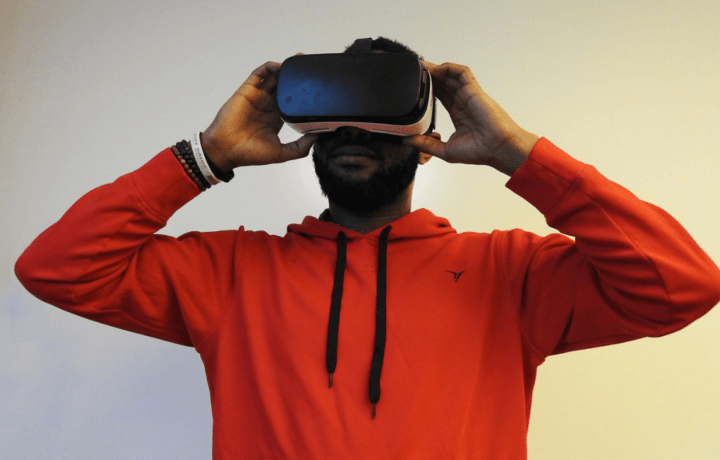Today about 130,000 U.S. veterans are legally blind, according to the Blind Rehabilitation Services at the U.S. Department of Veteran Affairs, while more than a million now live with low vision that causes loss of ability and independence to perform even necessary daily activities.
Something that might have seemed only possible in science fiction could now allow many of those veterans to see. This is the IrisVision VR headset, which combines the latest mobile virtual reality system along with customized Samsung Galaxy smartphone to enable low vision patients to see. This can include the ability to see the faces of loved ones, watch television, read a book, work, travel, and cook.
The IrisVision VR headset, which is an FDI Class I medical device, was developed by leading vision scientists in the United States. It has been backed by a grant from top vision institutions, including the National Eye Institute, and validated by eye specialists and researchers from top ophthalmology centers at Johns Hopkins University, Stanford University, and UPMC Pittsburgh.
The wearable headset can be used to provide vision to those who suffer vision loss from a variety of causes including Macular Degeneration, Diabetic Retinopathy, Stargardt Disease, Retinitis Pigmentosa (RP), Glaucoma, Cataracts, Aniridia, and Optic Atrophy, among others.
Phoning in Vision
The strategic partnership between IrisVision and South Korea consumer electronics giant, Samsung was announced at the Consumer Technology Association’s annual CES (formerly the Consumer Electronics Show) trade event this past January. IrisVision had already been awarded with a CES 2019 Innovation Award that recognized its technology and customer success.
“At Samsung, we aim to not only build great mobile solutions but also to give our key partners mobile technology platforms to develop and provide their own innovation,” said Edward Choi, corporate vice president of Global Strategic Alliances at Mobile Communications Division, Samsung Electronics, at the time the partnership was announced.
“It is amazing to see what IrisVision is doing to enable the large and underserved low vision community to live more independently,” added Choi. “We will help guide IrisVision on technology integration and market strategy to ultimately help every affected patient.”
Insight on Their New Sight
For those veterans who have already benefited from the IrisVision VR headset, there is nothing virtual about what they are seeing. This included 73-year old Wachi, FL resident and Vietnam War veteran Vince Immediato, who was declared legally blind after suffering two strokes to each of his optic nerves. Prior to losing his vision, he had restored and repaired guitars and amplifiers and spent his golden years traveling in his motorhome.
“I did everything with my hands and eyes,” he told ClearanceJobs in an email. “All of a sudden that was gone.”
The VR headset has allowed him to regain some of the independence he had lost.
“I can now see everything I was not able to see before,” Immediato added. “It’s all the little things that make this device so special. I can look out the kitchen window and see the red flag on my mailbox, flip through the switches on the AC device at home, go to the park and clearly see the animals and objects that I could barely make out in the past.”
For Jimmy Blakely, 71, of College Station, TX, the new technology returned what was lost due to exposure from Agent Orange during the Vietnam War. The device has given back the colors and clarity that many ordinary-sighted people simply take for granted. The headset will also allow Blakely to be a caretaker for his wife, who is currently undergoing cancer treatment.
Blakely told ClearanceJobs, “When they put the IrisVision headset on, it was like an explosion of color and clarity. You’d don’t realize what you missed until you see what you were missing.”




